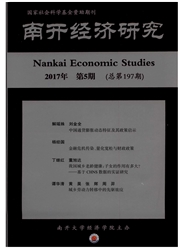
欢迎您!东篱公司
退出

 中文摘要:
中文摘要:
当前我国学术界重视数量而轻视质量的浮躁现象根源于信息不对称条件下实行的学术锦标赛制度。锦标赛作为一种“强激励”措施,能促使研究人员将更多的时间投入科研;但学术活动作为专业化行为具有较强的信息不对称特征,如果缺乏配套措施鉴定学术质量,学术锦标赛就变成单纯的数量比赛。本文建立了一个两阶段职称竞争模型刻画了上述特征,发现中国学术界的真正繁荣有赖于同行评议、终身教职等制度的建立。
 英文摘要:
英文摘要:
The reason that China's academy focus on quantities rather than quality is largely due to the fierce academic tournaments. As a strong incentive mechanism, tournaments can make researchers spent more time to academy. However, academy characterized as strong information asymmetric, once the academic quality cannot be assessed accurately, toumaments tums into a pure quantity competition. This paper developed a two-stage competition model, and found that the true prosperity of China's academy depends on the establishment of peer review and tenure mechanism.
 同期刊论文项目
同期刊论文项目
 同项目期刊论文
同项目期刊论文
 期刊信息
期刊信息
